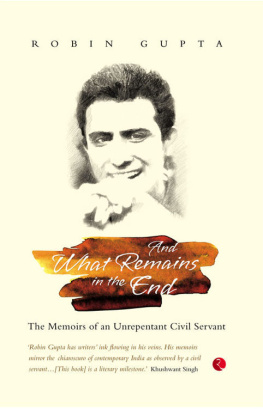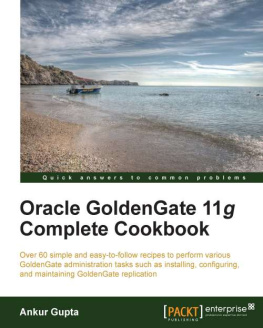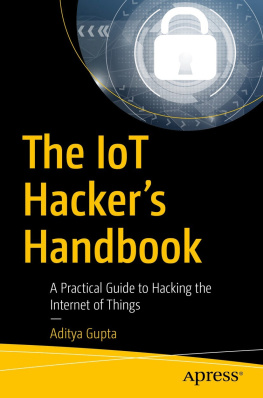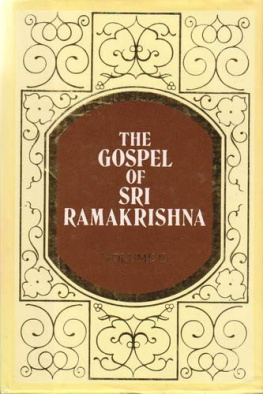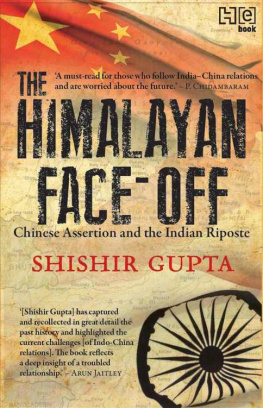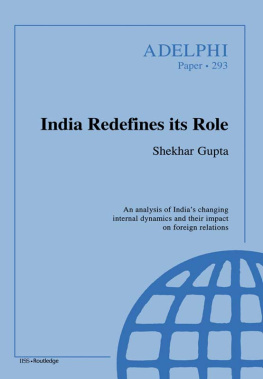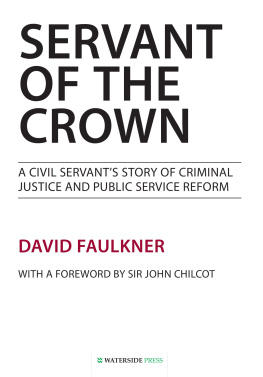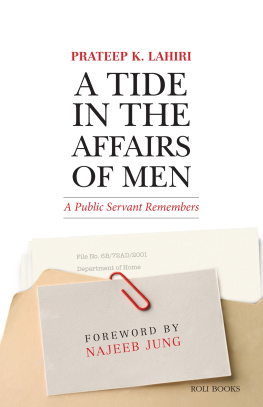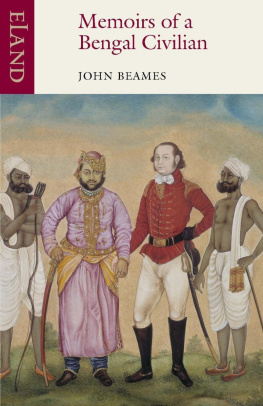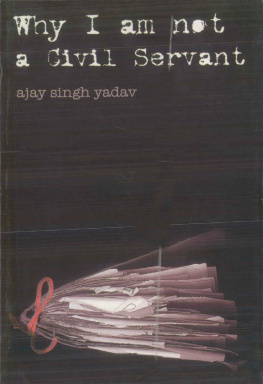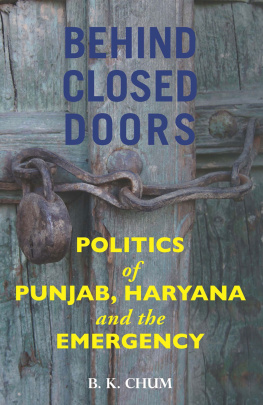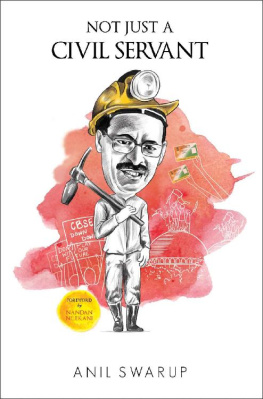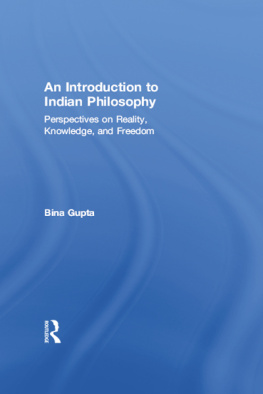Published by
Rupa Publications India Pvt. Ltd 2013
7/16, Ansari Road, Daryaganj
New Delhi 110002
Sales centres:
Allahabad Bengaluru Chennai
Hyderabad Jaipur Kathmandu
Kolkata Mumbai
Copyright Robin Gupta 2013
The views and opinions expressed in this book are the authors own and the facts are as reported by him, which have been verified to the extent possible, and the publishers are not in any way liable for the same. Names of some people have been changed to protect their privacy.
eISBN: 9788129122919
All rights reserved.
No part of this publication may be reproduced, transmitted, or stored in a retrieval system, in any form or by any means, electronic, mechanical, photocopying, recording or otherwise, without the prior permission of the publisher.
The auhors moral right has been asserted.
Typeset in Adobe Garamond Pro 11/13.8 by Jojy Philip, New Delhi.
Printed at Replika Press Pvt. Ltd, Haryana.
This book is sold subject to the condition that it shall not, by way of trade or otherwise, be lent, resold, hired out, or otherwise circulated, without the publishers prior consent, in any form of binding or cover other than that in which it is published.
To Mother,
in whose memory
I survive.
Contents
Prologue
Recently, at a cocktail party in the Blue Room of the Delhi Gymkhana Club, while the assembled guests were exchanging pleasantries, the television was switched on to reveal lakhs of persons raising slogans in support of Anna Hazare and the Jan Lokpal Bill. In between an animated discussion about the good intentions of Hazare and his clarion call for a second war of independence to achieve economic freedom for the Indian people, Lady Pereen Rustomjee, an elegant dowager, clad in a gown of shimmering lam, fluted glass brimming over with pink champagne in hand, stepped forward precariously, declaring: I shall write to Victoria Regina to return and take charge of this mess and to the Indian princes to return to their thrones.
There is little doubt in my mind that the country is veering dangerously towards catastrophe; the largest democracy in the world, in a little over six decades, has displayed a remarkable inability to take charge of itself.
It is quite clear to me that had it not been for the Indian Administrative Service (IAS), successor to the more hallowed Indian Civil Service (ICS), the centrifugal and fissiparous forces in a large subcontinent, with its steeply uneven levels of socio-economic development, would have torn the idea of the Indian nation into shreds. The efforts and successes directly attributable to civil servants have contributed significantly in developing the country, despite the heavy hand of successive, sometimes well-intentioned yet rudderless political leaders who formed the political government of the day.
Sardar Patel, the patron saint of the All India Services, in no uncertain terms told the Constituent Assembly at the time of Indias independence: You will not have a united India if you do not have a good All India Service which has the independence to speak out its mind, which has a sense of security. Patel was opposed by state chief ministers who invoked the federal principle and wanted to constitute their own provincial services; however, his logic prevailed although, at that time, his farsightedness was not fully understood. Most of the national leaders then at the helm of affairs were men with a record of integritythey had dedicated their careers to winning liberty for India and were also witness to the carnage of Indias partition from Pakistan. They understood that, apart from constitutional guarantees, the tenure of an officer in a particular post should be long enough to enable him to acquire the expertise needed to do justice to his duties. And so was born the IAS, and the governments fighting arm in civilian administration, the Indian Police Service (IPS).
As a result of Sardar Patels vision, from Jammu and Kashmir in the north to Kanyakumari in the south, from Dwarka in the west to Puri in the east, the Indian Administrative Service has held the country together for sixty-six years and ensured the stability and continuity for India as a nation. Today, in a country with a population of over a billion, there are approximately 5,000 members of this highly respected service; however, the number who have made it to the IAS without the crutches of reservation and sifarish does not exceed 2,000.
As we progress into the twenty-first century, there is an acrimonious debate on whether to retain the IAS or to eliminate itat a time when India is being looked upon as a growing economic superpower, the fourth-greatest in the world, and its scientific and technological achievements are being hailed the world over. It is, however, evident to all who have studied the socio-political history of India over the decades since independence that central to Indias governance is the Indian Administrative Service, the officers of which have maintained unquestioned control over the system at the Centre and in the states. The committed bureaucrat silently performs his duty, whenever he is permitted to do so by the disintegrating circumstance.
I write these memoirs in the understanding that my curious interactions in the civil servicespanning over thirty-six yearswould confirm the vastly erratic and unimaginable gamut of individual experience, and to draw attention to the role of absurdity as well as the interchangeability of reality as driving forces in mans quest for life.
My sister Urvashi, who has not married or multiplied, has been resident in distant America for over four decades. And I have never known love in a relationship of my own creation. But though most of the journey is over and lifes dream has practically extinguished itself, with silver hair on a receding forehead, there is yet the impelling hope that a wayfarer will emerge.
Throughout these memoirs, Mother, whom I loved dearly and constantly turned to for guidance and support, appears and reappears, for she had a wealth of wisdom and eclectic judgement. She knew the civil service well, her brother having topped the ICS examination in the 1930s, and her father too having been a civil servant who retired in 1913 after serving with distinction all over the Punjab Province. She kept me company till 2006, with her faculties intact in the hundredth year of life.
My brilliant father was amongst the earliest batches of Asians to enrol as a Fellow of the Royal College of Surgeons of London, in 1933 and, thereafter, to become a Fellow of the International College of Surgeons, USA. He went on to join the Indian Medical Service, having been commissioned in the British Indian army, in which he served as a celebrated surgeon-soldier, during the Second World War, under Field Marshal Montgomerys command of the victorious 8th Army, in the Middle East Theatre. As I was away in boarding school for long periods, and since my parents should really have been my grandparents, and, more importantly, since I sheltered behind the imposing persona of my magnificent and indulgent mother, I rarely caught glimpses of my debonair father. He was a silent intellectual, elegantly dressed in Saville Row suits and felt hats, an understated gentleman with perfect manners and precise reactions, all of which inspired awe and made me feel insecure. He died a slow painful death battling the incurable and progressive Parkinsons disease that destroyed his life. When he was sixty-five years of age, my father died in the Army Hospital in Delhi, which he had commanded in 1945. I had the privilege of being by his side when, just for a flicker, he opened his expressive brown eyes for the last time. It is my abiding grief that we could not share more time together, that I could not draw upon the luminosity of his mind, that there could be no tender exchanges between an uncertain son and his father. However, he lived to see me join the Indian Police Service and smiled in acknowledgement when he saw me in uniform. He passed away in 1973, a year before I joined the IAS and, decades later, when I was posted to areas where he had served, I felt his inspiring presence by my side while looking at the flag fluttering on my car, bearing the legend: Financial Commissioner, Punjab.

